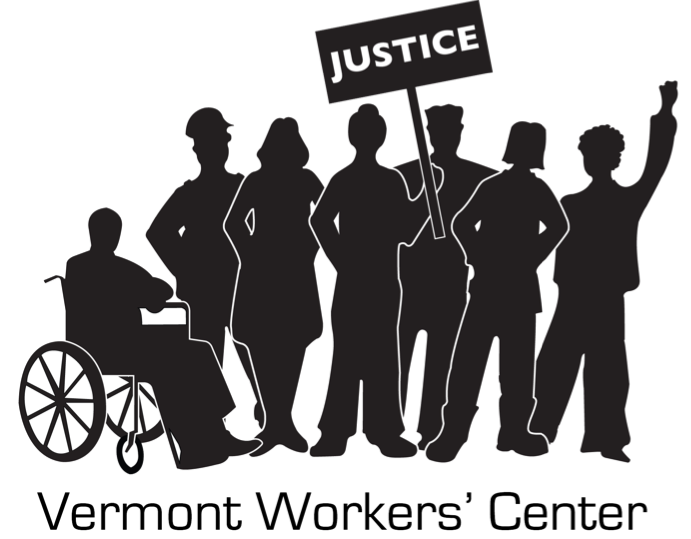Vermont Workers’ Center Statement on Budget Cuts, January 2002
We view the state budget cuts as an attack on the majority of Vermonters. There is no excuse for balancing the budget on the backs of those who are already suffering from the current recession when the State has the option of using the Rainy Day Fund and raising revenue through fairer taxation.
For the past decade, the rich have profited from tax cuts and preferential treatment for stocks and other unearned income while regular Vermonters have seen their real wages go down. Instead of planning for harder times, the State gave away its surplus to those who didn’t need it in two separate tax cuts.
Now that harder times are here and Vermont is facing a deficit, the State has cut and threatens more cuts to programs that working people in our state rely on. The cuts most directly impact access to health care, education, and assistance for disabled Vermonters. Currently under-funded services in dozens of other areas, including employment and training, childcare, and adult education, are also being reduced. The cuts threaten the safety and livelihood of public and publicly-funded employees through extreme short-staffing levels, as well as potential layoffs and/or wage cuts. Most Vermonters’ property taxes will likely rise to pay the cost of necessary services the State no longer supports. All of this means that Vermonters are now being asked to pay out of their own empty pockets for a budget crisis that could have been avoided, a budget crisis that can be solved in other ways.
We stand against any budget cuts to make up for the budget shortfall. There is plenty of money to pay for all needed public services, and Vermonters should not be forced to pay for bad fiscal decisions made by the State in the past. Instead, the State should take one or more of the following actions:
- Tax unearned income at the same rate as earned income. Vermont is one of only three states that taxes capital gains (stocks, bonds, etc.) at a lower rate than earned income. Just taxing income that people don’t work for at the same rate as income people work for would bring in $25 million/year.
- Re-institute a more progressive income tax. The State should be increasing taxes on the rich who can afford paying more instead of workers who are most affected by the recession and face job loss throughout the state. During the last recession in 1991, Governor Richard Snelling instituted a progressive income tax that fell mostly on the wealthy. If the State were to institute the same tax structure now, the State of Vermont’s Joint Fiscal Office itself estimates that $130 million would be raised.
- Reverse state income tax cuts for wealthy and corporations. In 1999, Vermont decreased the state income tax from 25% to 24% of the federal tax rate. Well over half of the $15 million saved went to the top 9% of Vermont households, while 65% of households got only 14% of the money. Reversing this cut would bring in $19 million next year.
- Use the Rainy Day Fund. Because the above actions would bring in revenue next year, money in reserve should be used this year. The State would need to use only half of the Rainy Day Fund to prevent all cuts to public programs.
We call on the Legislature to immediately reverse all budget cuts and fully fund public programs.
